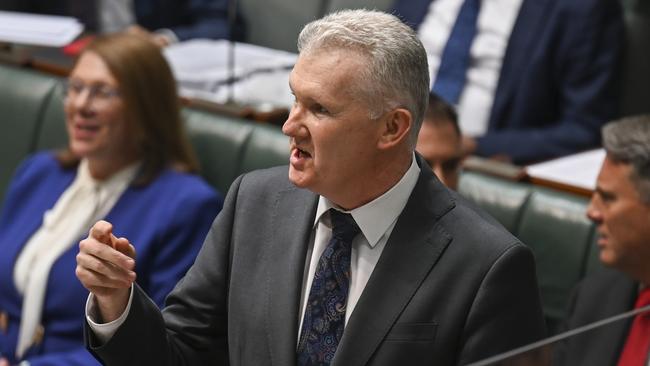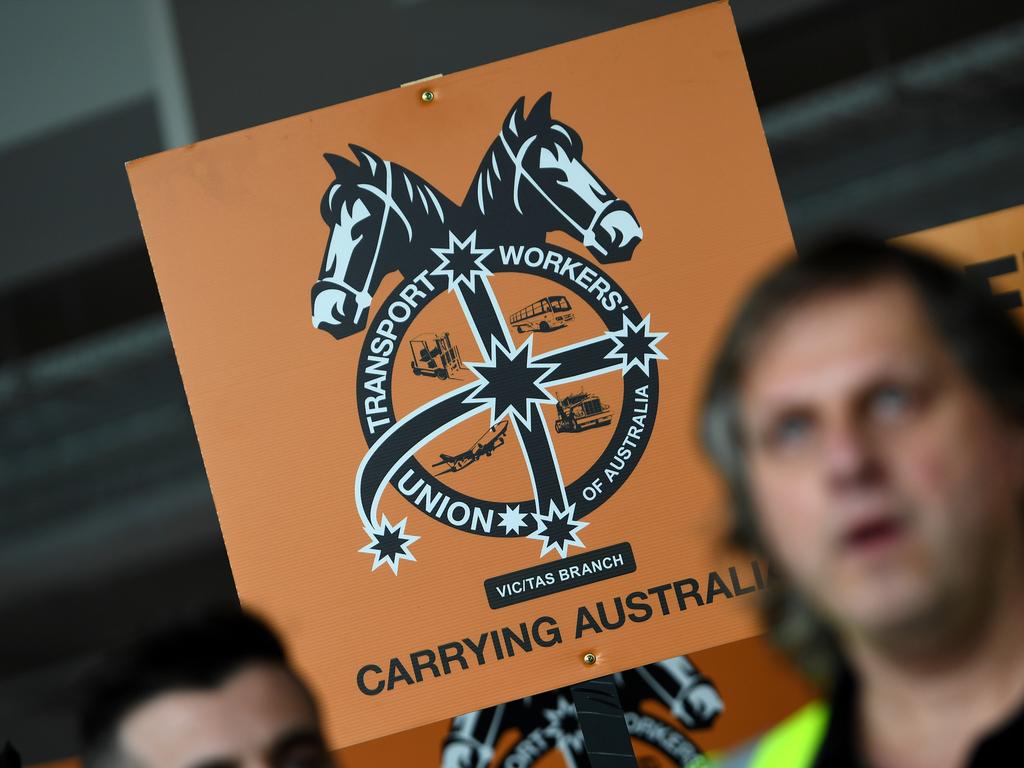Business alarm at Labor’s second IR wave
Employers warn Labor’s next wave of IR changes will demonise labour hire firms as government targets ‘cowboy’ operators.

Employers have warned Labor’s next wave of industrial relations changes threatens jobs and risks demonising labour hire firms, as the government accuses “cowboy” operators of undercutting wages and undermining job security.
After their campaign of opposition failed to thwart passage of the government’s first tranche of workplace law changes, business groups are expressing alarm at Labor’s second round that includes a “same job, same pay” policy cracking down on worker exploitation by labour hire firms.
Employment and Workplace Relations Minister Tony Burke said: “Workers doing the same job at the same site should get the same pay. There are legitimate uses for labour hire, particularly when companies need a seasonal or surge workforce.
“But some companies are deliberately using cowboy labour hire firms that exploit casual workers in order to undermine job security and undercut wages,” Mr Burke said. “They’re using a loophole, which the former Liberal and National government refused to close, which is causing a race to the bottom on wages.”
Business Council chief executive Jennifer Westacott said that employers were “bitterly disappointed” by the government’s expansion of multi-employer bargaining and before adding another layer of complexity to the workplace system, “we need to be very clear about the problem we’re trying to solve and whether the existing system can fix it”.
“We won’t attract new industries, new opportunities and better paid jobs with our feet stuck in the cement of an overly complex workplace system that adds friction to supply chains, makes it hard to adapt to change or to do things differently,” Ms Westacott said.

“As the Prime Minister has said, you can’t have jobs without successful businesses, so any more changes must be designed through genuine consultation with employers.
“The enormous complexity of the government’s new multi-employer bargaining laws and uncertainty about how they’ll work in practice is already a massive disincentive for businesses that want to invest, employ or expand in Australia, we can’t afford to make the problem any worse.”
But Mr Burke said the government was “consulting extensively on how best to fix this, but we are determined to close the loopholes that are suppressing wages”.
The first tranche’s contentious multi-employer changes come into operation from June. As well as the labour hire changes, the next wave will include measures to tackle wage theft, the creation of a fair test to determine when a worker can be classified as a casual; and a proposed extension of the Fair Work Commission’s powers to include employee-like forms of work, notably gig economy work.
Key Senate crossbencher David Pocock, whose support with the Greens was enough for the first round of changes to be passed, said on Sunday: “Following the speed at which the first tranche of industrial relations legislation was progressed, I am looking forward to an earlier engagement with government on this next stage of reforms. There are some serious concerns about conditions faced by workers in the gig economy and those engaged in less secure forms of work.”
One Nation has advocated labour hire workers be paid the same as direct employees in certain awards, including those covering black coalminers and aircraft cabin crew.
ACTU assistant secretary Liam O’Brien said the fact that workers in the same workplace doing the same work could be paid radically different rates and have different access to basic benefits such as paid leave showed the extent to which employers were able to game the current workplace system.

“Same Job, Same Pay is not just a sensible and overdue reform, but a commonsense principle that most Australians would probably be shocked to find is not already the law of the land,” Mr O’Brien said.
“Employers who have been exploiting these loopholes to lower wages and strip conditions will complain about these changes, but working people have been waiting a long time for a government which cares more about their interests than the profit margins of billionaire miners and other big businesses.”
Labor has flagged introducing the second tranche bill in the first half of 2023, but has yet to set a proposed operative date, with Mr Burke saying it would not be in the early part of the year.
Australian Industry Group chief executive Innes Willox said the changes must be measured and carefully considered, and not give effect to a “simplistic and unjustified attack on the labour hire sector or the employers and the employees that rely on it”.
“There is a real risk that an ill-thought out approach in this area will jeopardise employment opportunities and just be another weight on our economy,” Mr Willox said.
Australian Resources and Energy Employer Association chief executive Steve Knott said the government and ACTU through the “Marx-inspired ‘same job same pay’ policy” had sought to demonise labour hire employers and companies engaging their services.
Mr Knott said labour hire employees in the resources and energy sector routinely earned salaries much higher than $130,000 a year.
“The campaign slogan focus here has been to perpetuate the myth that well-paid labour hire employees are somehow disadvantaged and seek to give unions a relevance platform with such workers,” he said.







To join the conversation, please log in. Don't have an account? Register
Join the conversation, you are commenting as Logout